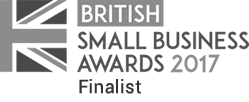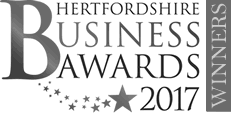Course Details
- Course Code: USMG19CMH
- Location: Online
- Duration: 30+ hours
- Cost:
- Qualification: All modern browsers and devices
Further Details
- Course Access: Lifetime
- Exams Included: Yes
- Compatibility: All modern browsers and devices
Approved Course:

Course Modules/Lessons
Anxiety Awareness Certification
Module 4 : Cognitive, Affective and Behavioral Causes of Anxiety; Generalized Anxiety Disorder (GAD)
- Cognitive anxiety symptoms (mood and thought disorders)
- Affective and behavioral anxiety symptoms (emotions, behaviors);
- Generalized Anxiety Disorder (GAD) and its impact on your life
- GAD in children and adolescents
Module 9 : Anxiety Therapies and Treatments (Part I)
- Definition of a phobia and common types of phobias
- Definition of exposure response prevention therapy
- Types of ERP (exposure response prevention) techniques, including in vivo, imaginal, virtual reality and interoceptive
- Graded, flooding and systematic desensitization methods
Cognitive Behavioral Therapy (CBT) Certification
Module 01: The Underlying Principles Behind CBT
- A brief overview of what is meant by the term “CBT”
- An overview of the most common counselling approaches in modern therapy
- The context of CBT, including the research and psychological approaches underlying CBT
- The interplay of thoughts, emotions and actions as conceptualized by CBT practitioners
Module 02: Basic Counseling Skills
- Why basic counseling skills are the foundation of good practice, regardless of the therapeutic approach used
- The role of the therapeutic alliance and how it differs from friendships and other professional relationships
- Why therapists must maintain appropriate boundaries between themselves and a patient and the consequences of poor boundary-setting
- The importance of listening and the differences between passive and active listening
Module 05: Planning A CBT Session
- Why you need to understand the components that make up an effective CBT session
- Material that should be addressed within the first few minutes of a session
- How to review homework and provide constructive feedback
- How to set and implement a suitable agenda for the session
Module 06: Basic CBT Techniques
- How to help a patient challenge their negative thoughts using thought records and diaries
- The most common cognitive distortions seen in CBT practice
- How to help a patient overcome resistance with regards to changing their thoughts
- The STOPP technique and how it can help a patient live with negative thoughts
Module 07: Further CBT Techniques
- How behavioral experiments can be used to challenge a patient’s thoughts and feelings
- The various types of behavioral experiments used to help patients address their fears and overcome maladaptive thoughts
- How exposure and response prevention techniques can help a patient overcome compulsive behaviors
- Why encouraging a patient to imagine the worst-case scenario can help lower their CBT is currently the type of talking treatment most commonly off anxiety levels
Module 08: Using CBT In The Treatment Of Depression, Anxiety & Phobias
- The symptoms of depression and why it is the most commonly seen problem in contemporary CBT practice
- The typical thought patterns that present in cases of depression and how these cognitive distortions affect a patient’s feelings and behaviors
- Why people with depression have problems enjoying activities and how CBT can help them re-engage with life
- The various types of anxiety disorders and how a patient’s thoughts, feelings and behaviors can maintain the symptoms
Module 09: Using CBT In The Treatment Of Excessive Anger & Insomnia
- The signs of pathological anger and why it warrants careful management
- What happens in the body when someone experiences extreme anger and why it is useful to explain this process to a patient
- The thoughts, feelings and behaviors underlying pathological anger
- How to help a patient challenge their thoughts, feelings and behavior to reduce their anger
Module 10: Dialectical Behavior Therapy (DBT) & Solution-Focused Therapy (SFT)
- How early CBT paradigms laid the basis for other variations now in popular use
- An overview of Dialectical Behavior Therapy (DBT) and its key indications
- The specific skills and techniques a therapist needs to implement DBT
- An overview of Solution Focussed Brief Therapy (SFBT) and how it can be used to trigger positive change in patients
Module 04: Case Formulation, Irrational Beliefs & The ABC Model
- How to conduct a patient consultation and formulate a case
- The components of a good case formulation and how it should be used to guide a therapist’s choice of techniques
- How the ABC model can be used to help a patient understand how their beliefs are maintaining their state of distress
- How to help a patient identify their irrational beliefs
Advanced Cognitive Behavioral Therapy (CBT) Certification
Module 01: What is Cognitive Behavioral Therapy (CBT)?
- The basic principles of CBT, including the interaction between thoughts, feelings and behaviors.
- A brief history of CBT and how the first pioneers developed their theories and techniques.
- The problems that can be addressed using CBT, the populations that benefit from it and why it is not suitable for everyone.
- The main methods used by CBT practitioners and the role of the therapeutic relationship in CBT.
Module 02: Behavioral Neuroscience
- Why CBT practitioners benefit from acquiring a basic knowledge of behavioral neuroscience.
- The key concepts behind behavioral neuroscience and how it helps us understand the actions of both well and mentally ill individuals.
- How noradrenaline affects human behavior.
- The role of dopamine in human behavior.
Module 03: Acceptance Commitment Therapy, Behavioral Therapy and Cognitive Analytic Therapy
- An overview of Acceptance Commitment Therapy (ACT) and its philosophical foundations.
- ACT techniques used by practitioners in the treatment of psychological disorders.
- An overview of Behavioral Therapy (BT).
- The applications of BT and how it can help clients facing a range of problems.
Module 05: Using CBT to Treatment Eating Disorders
- What is meant by the term “eating disorder.
- The types of eating disorder seen most often in therapeutic practice and the symptoms of each.
- The thoughts, behaviors and feelings usually seen in eating disorders.
- CBT interventions that are effective in conquering the maladaptive patterns underlying eating disorders.
Module 07: CBT in the Treatment of Stress and Anxiety
- What is meant by the term “stress.
- Why people become stressed and the symptoms of stress and burnout.
- How CBT can be used to lower a client’s stress levels and improve their wellbeing.
- What is meant by the term “anxiety” and the CBT interventions most often used by practitioners to help an anxious client.
Module 08: How CBT Can Be Used To Improve Relationships
- Why relationship difficulties are so common.
- Why a couple may seek out CBT.
- How a CBT practitioner can work with a couple to uncover underlying problems in how they communicate with one another.
- Why an individual or single person might seek out CBT to help improve their relationships.
Module 9: How CBT Can Be Used To Treat Addiction
- What is meant by the term “addiction.
- The most common forms of addiction treated by CBT practitioners.
- How addiction is conceptualized in CBT and how thoughts maintain addiction behaviors.
- How a CBT therapist structures an addiction intervention therapy program
Module 10: Working as a CBT Therapist
- How to pursue formal training as a CBT therapist.
- The key considerations to bear in mind when deciding whether to work in the private sector, the public sector, or both.
- How to promote your services as a private therapist.
- How to meet your legal obligations with regards to insurance, tax and supervision.
Mental Health Awareness Certification
Example Certificate




How online learning can benefit you..
FAQ's
-
Who can take the course?
Anyone who has an interest in gaining a greater understanding of this subject is encouraged to take the course. There are no entry requirements to take the course.
-
What is the structure of the course?
The course is broken down in to individual modules. Each module takes between 30 and 90 minutes on average to study. Although you are free to spend as much or as little time as you feel necessary on each module, simply log in and out of the course at your convenience.
-
Where / when can I study the course?
You can study the course any time you like. Simply log in and out of the web based course as often as you require. The course is compatible with all computers, tablet devices and smart phones so you can even study while on the move!
-
Is there a test at the end of the course?
Once you have completed all of the modules there is a 30 (multiple choice) question test. The questions will be on a range of topics found within the modules. The test, like the course, is online and can be taken a time and location of your choosing.
-
What happens if I fail the test?
If you don’t pass the test first time you will get a second opportunity to take the test again after further study.
-
When will I receive my certificate?
Once you have completed your test you can log in to your account and download / print your certificate any time you need it. If you would prefer us to post you a certificate there will be an admin charge of $16
-
How can I pay?
We use Paypal for all payments on the site. You can either use your Visa, MasterCard ,American Express, Solo cards or PayPal account to pay for the online course. All payments are handled securely by Paypal.
-
Is my payment secure?
As previously mentioned your payment is totally secure. We use the latest ssl encryption for all transactions.
-
How long after payment can I begin the course?
You can begin the course immediately after your payment has been received.
You should receive an email with your log in details as soon as your payment has been accepted. If you don’t get this email please check your junk folder, failing that please contact us for further assistance. -
How long is my certificate valid for?
There is no expiry or renewal fees





















